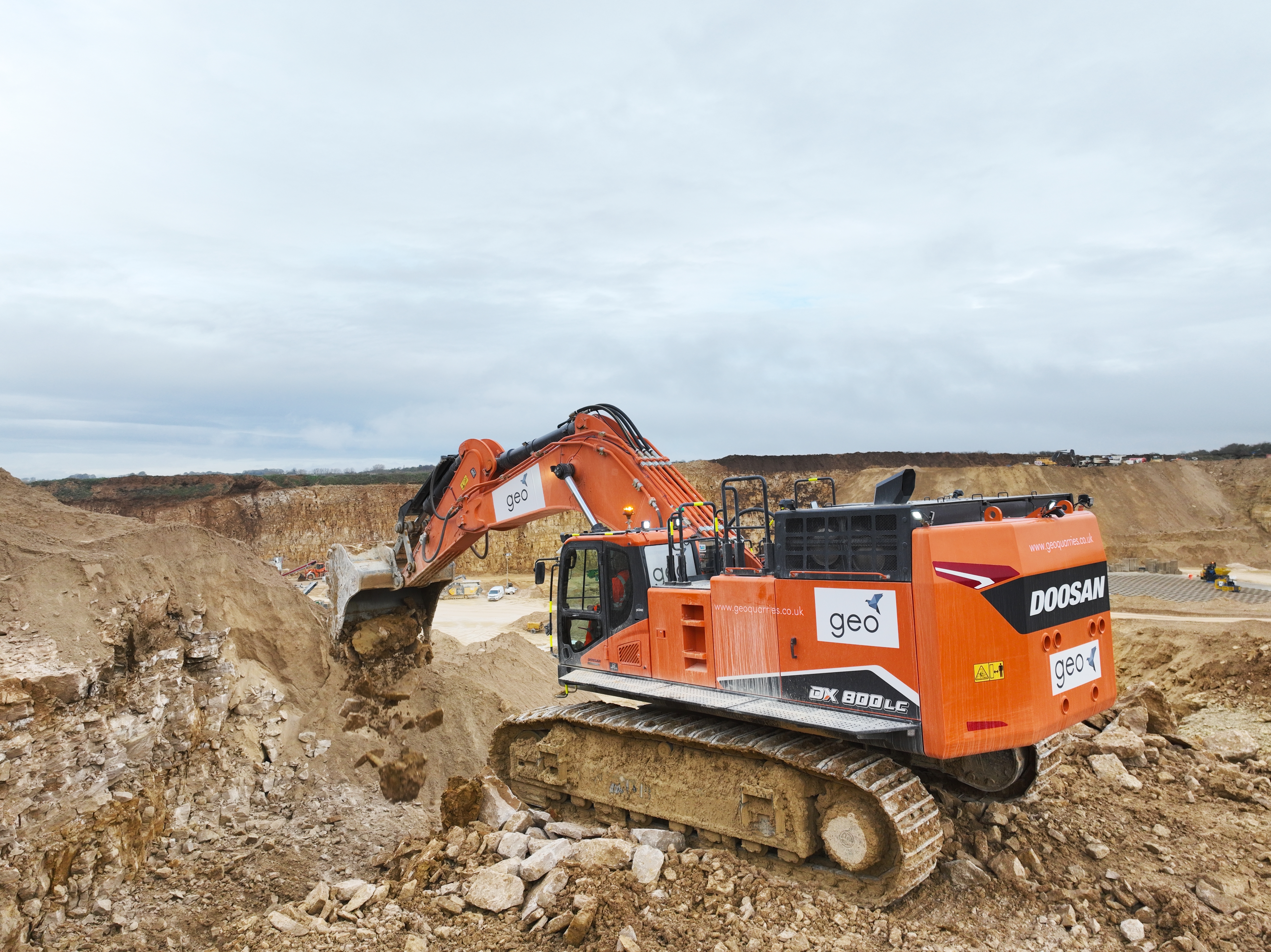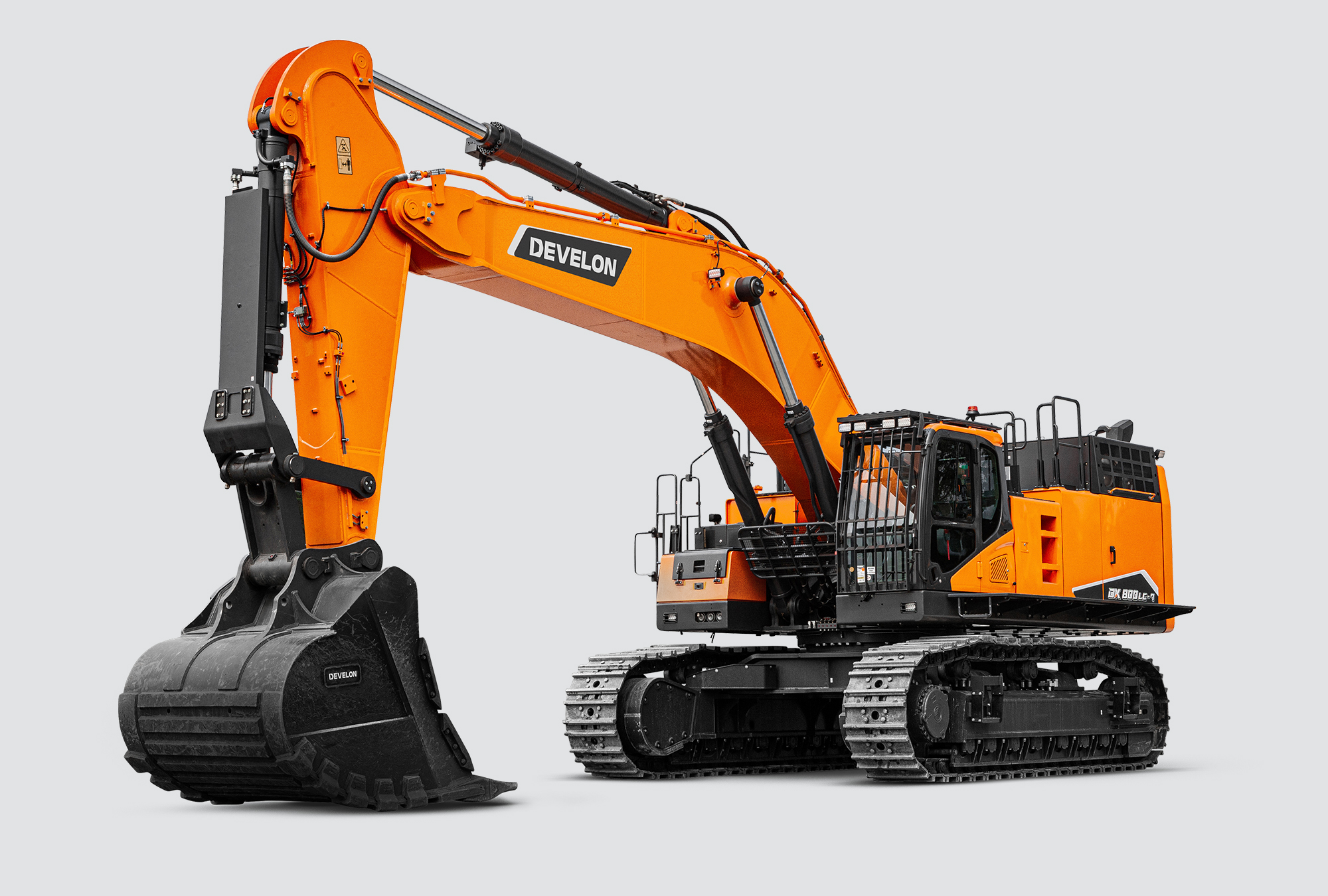New DX800LC-7 is ‘Game Changer’ at UK Limestone Quarry
The arrival of a new Doosan DX800LC-7 80 tonne crawler excavator at Geo Quarries’ Little Ponton Limestone Quarry in Grantham in Lincolnshire in the UK, has been described as a ‘game changer’ by the General Manager, Rob Jackson. When this comment comes from someone like Rob, with almost 40 years in the industry, it carries even more weight.
Rob goes even further, when he describes the new Doosan 80 tonne excavator as ‘the best investment we have made in the last two years.’ He adds:
“It really is an awesome machine - most people might think the bigger the excavator and the harder it is worked the more fuel it will burn, but it’s quite the opposite with the DX800LC-7, by a long way.”
The DX800LC-7 was supplied by Leicester-based Pioneer Plant Ltd, the local Authorised Doosan Dealer. Pioneer Plant offers over 40 years of plant dealership experience for both new and used equipment, providing a wealth of knowledge and expertise to advise and support customers with their plant purchases and how Doosan products can be used in their businesses.
Before its arrival, Pioneer Plant reckoned the DX800LC-7 excavator’s average fuel burn was 33 litres an hour. However, Rob Jackson has gone one better at 32 litres an hour and by way of putting that in context, he comments:
“We have two 70-tonne machines, both different brands. One was using up 48 litres an hour, the other 40 litres, so we are making a huge saving with the Doosan DX800LC-7. Especially given that diesel is around the £1.50 mark at the moment. That’s what I call a game changer.”
It’s also a game changer in another way, as Rob explains:
“By using the Doosan DX800LC-7 which has been fitted with a heavy-duty MST rock bucket to dig out the virgin limestone and take it down to the crusher, we don’t have to resort to blasting, which is another cost saving. The Doosan machine is now doing the work of the two older 70-tonne machines. It simply takes everything you throw at it in its stride. We are probably moving about 3000 to 4000 tonne of unblasted rock on an average day.”

